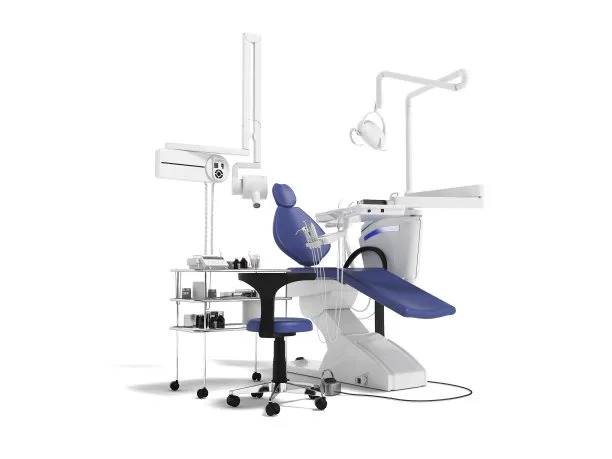Summary: The interconnection between periodontal disease and overall health is gaining increased recognition in modern dentistry. This article explores how periodontal disease can influence systemic health, the potential mechanisms behind this link, the implications for patient wellness, and the importance of integrated healthcare approaches. By understanding these connections, dental professionals and patients alike can work towards improved outcomes and enhanced quality of life. Through a comprehensive examination of evidence, we aim to highlight the necessity of maintaining oral health not only for the sake of dental wellness but also for overall health improvement.
1. Understanding Periodontal Disease and its Causes

Periodontal disease, also known as gum disease, is a chronic inflammatory condition affecting the tissues supporting the teeth. It is primarily caused by the accumulation of dental plaque, a sticky biofilm of bacteria that forms on teeth. If left untreated, this plaque can harden into tartar, leading to gingivitis and, ultimately, more severe forms of periodontal disease.
The main risk factors for developing periodontal disease include poor oral hygiene, smoking, certain underlying conditions (like diabetes), and genetic predisposition. Understanding these factors is crucial for effective prevention and intervention, which can significantly reduce the burden of this disease on overall health.
Furthermore, the prevalence of periodontal disease can escalate with age, making it a critical concern for older adults. As such, it becomes essential to educate patients on the prevention and early intervention strategies necessary for maintaining periodontal health.
2. The Link Between Gum Disease and Systemic Health
Research has increasingly demonstrated that periodontal disease can have detrimental effects on systemic health. Conditions such as cardiovascular disease, diabetes, and respiratory illnesses have been shown to be connected to periodontitis. Inflammation caused by gum disease may lead to systemic inflammation, worsening existing health issues or contributing to the development of new ones.
The oral-systemic health connection is particularly apparent in individuals with diabetes. Studies have shown that periodontal disease can complicate the management of diabetes and vice versa. This bidirectional relationship emphasizes the importance of managing oral health as part of a holistic approach to tackling chronic diseases.
Moreover, poor oral health has even been implicated in adverse pregnancy outcomes, including preterm birth and low birth weight. This further illustrates the vital role that dental health plays in overall wellness, particularly for vulnerable populations such as pregnant women.
3. Impact on Patient Wellness and Quality of Life
Beyond the direct health implications, periodontal disease can significantly impact patient wellness and quality of life. Chronic pain, swelling, and discomfort associated with gum disease can lead to difficulties in eating and speaking, which can adversely affect nutrition and communication.
Additionally, the psychological implications of oral health conditions should not be underestimated. Patients with periodontal disease may experience feelings of embarrassment, anxiety, or low self-esteem, particularly in social and professional settings. This emotional toll can further complicate overall wellness, leading to social withdrawal or depression.
Healthcare providers must recognize these multifaceted effects and integrate periodontal health into discussions about overall well-being, aiding patients in achieving better emotional and physical health outcomes.
4. Integrated Care Approaches for Better Outcomes
To mitigate the effects of periodontal disease on overall health, an integrated care approach is necessary. Dentists should collaborate with other healthcare professionals, including physicians, dietitians, and mental health specialists, to provide comprehensive care that addresses all aspects of patient wellness.
Implementing preventive measures aimed at reducing the prevalence of periodontal disease is essential. Regular dental check-ups, patient education about proper oral hygiene practices, and lifestyle counseling can empower patients to take control of their oral health.
Furthermore, encouraging patients to adopt a team-oriented approach to their healthcare can enhance communication between providers and foster a more holistic treatment strategy. This collaborative effort is crucial for improving both oral and systemic health, ultimately leading to a better quality of life for patients.
Summary:
In conclusion, the intricate relationship between periodontal disease and overall health highlights the importance of oral health in modern dentistry and patient wellness. By recognizing the systemic implications of periodontal disease, dental professionals can better inform treatment strategies, ultimately contributing to a comprehensive healthcare approach.
A concerted effort towards preventive care and integrated healthcare will not only improve dental outcomes but significantly enhance overall health and well-being for patients.
This article is compiled by Vickong Dental and the content is for reference only
Vickong Dental
Vickong Dental is a large medical group established in Hong Kong in 2008 by professors from well-known medical universities in Guangdong and Hong Kong, as well as medical doctors from key national '985' universities (including Master's supervisors and senior professors). The chain of branches brings together expert dentists with PhDs and Master's degrees from Hong Kong and Mainland China, committed to providing high-quality dental treatment.
"Vickong Dental Practices the University Motto of 'Healing and Serving Society,' with a Stable Operation for Sixteen Years. It Has Been honored with Hong Kong Enterprise Leaders's Choice,' and is a Global Trusted Implant Center for the Nobel Implant System. Recommended by Hong Kong Metro Broadcast and Guangdong Television, it Serves Customers from Over Thirty Countries and Regions, Gaining the Trust and Favor of Citizens from the Guangdong-Hong Kong-Macau Greater Bay Area and Surrounding Cities.

Thousands of customers' unanimous praise
The most recognized and highly recommended dental service by customers in the Guangdong-Hong Kong-Macau Greater Bay Area
We Ensure You Receive Detailed Care and Attention Here
Hong Kong standards, Shenzhen prices, Your Trusted English-speaking dentists

Vickong Dental Medical-Grade Instrument Disinfection Process
Vickong Dental Medical-Grade Instrument Disinfection Process

Vickong Dental Chain: A Warm and Comfortable Environment for Treatment






Appointment Hours

Q&A
Why choose Vickong Dental?
Vickong Dental practices the university motto 「Medicine to Benefit Society」, with each branch bringing together highly qualified dentists with doctoral and master’s degrees from Hong Kong and the Mainland, and has maintained seventeen years of steady operation。Recipient of 「2024 Hong Kong Enterprise Leaders Brand」, 「2025 Hong Kong Enterprise Leaders Brand」, a Nobel Biocare Global Trusted Implant Center, and a brand recommended by Metro Radio Hong Kong and Guangdong TV。
To date, we have served customers from more than thirty countries and regions,earning exceptionally high word-of-mouth recognition and trusted recommendations from residents across the Guangdong-Hong Kong-Macao Greater Bay Area and surrounding cities
We have eight major branches in Zhuhai、Shenzhen,and a consultation and service assurance center in Hong Kong,so you can book a free consultation at any time for any questions,which is very reassuring.
If I do not accept the quotation after the CT scan, will I be charged??
No! As long as the actual treatment has not started, you will not be charged any fees.
Will there be any additional charges during the treatment process?
No, there won’t be any additional charges. Before treatment begins, we will clearly explain the treatment plan and its corresponding fees. Only after the patient agrees and signs the consent form will we proceed with the dental service.
Can I pay in Hong Kong dollars?
Yes. Vickong Dental accepts payment in Hong Kong dollars. The amount will be converted based on the exchange rate of the day, and the applicable rate will be clearly communicated to you in advance.
Can I reschedule my appointment at any time?
Yes. Please contact us via **WeChat** or **WhatsApp** as early as possible, providing your original appointment time and details, along with your preferred new date and time slot for rescheduling.













